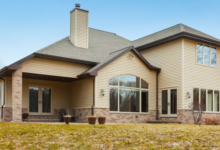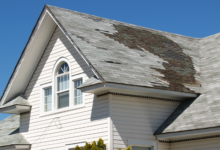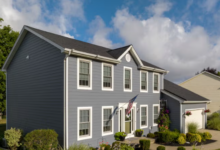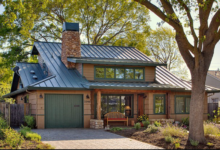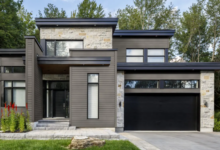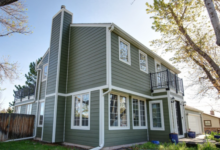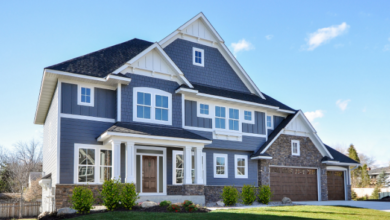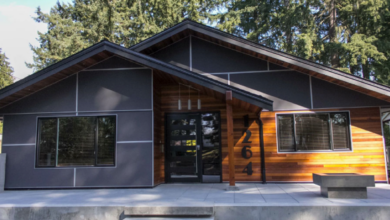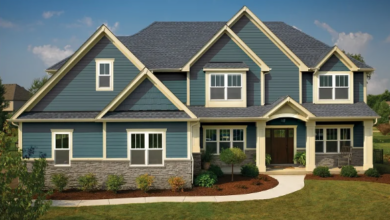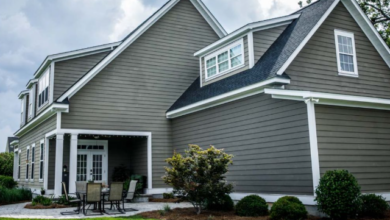Aluminum Siding vs Vinyl Siding: Comparison & Top Products
Aluminum Siding vs Vinyl Siding – Discover the key differences between aluminum and vinyl siding, their benefits, and explore top products to enhance your home’s exterior. Make an informed choice today!
Aluminum Siding vs Vinyl Siding: Which is Best for Your Home?
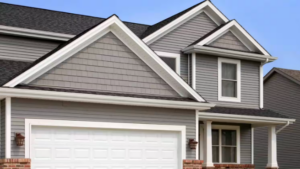
Choosing the right siding for your home is crucial for both aesthetics and protection. In this comprehensive guide, we’ll delve into the differences between aluminum and vinyl siding, their benefits, and highlight top products to help you make an informed decision.
Understanding Aluminum Siding
Aluminum siding has been a popular choice for homeowners since the mid-20th century. It’s known for its durability and resistance to various weather conditions.
Benefits of Aluminum Siding
Aluminum siding offers several distinct benefits that make it a compelling choice for homeowners:
- Durability:
- Aluminum is inherently strong and resistant to many forms of damage. It can withstand harsh weather conditions, including strong winds and heavy rain.
- It’s less susceptible to rot and insect infestation compared to wood siding.
- Longevity:
- With proper maintenance, aluminum siding can last for many decades.
- Fire Resistance:
- Aluminum is a non-combustible material, which provides added fire safety for your home.
- Moisture Resistance:
- Aluminum is highly resistant to moisture, preventing water damage and mold growth.
- Recyclability:
- Aluminum is a recyclable material, making it an environmentally friendly siding option.
- Paint Retention:
- Modern aluminum siding often comes with factory-baked finishes that are designed to resist fading and chipping.
- Aesthetic Versatility:
- Although it has a specific look, it can be painted many colours, allowing homeowners to customize the exterior of their home.
It’s important to keep in mind, however, that aluminum siding can be dented by impacts, such as hail, and may require repainting over time.
Benefits of Vinyl Siding
Vinyl siding has become incredibly popular among homeowners, and for good reason. Here’s a breakdown of its key benefits:
- Cost-Effectiveness:
- Vinyl siding is generally more affordable than many other siding materials, making it a budget-friendly option.
- Its low maintenance requirements also contribute to long-term cost savings.
- Low Maintenance:
- One of the most significant advantages is that vinyl siding requires minimal upkeep.
- It doesn’t need to be painted, stained, or sealed.
- Regular cleaning with soap and water is typically all that’s needed to keep it looking fresh.
- Durability:
- Modern vinyl siding is designed to withstand various weather conditions, including rain, wind, and snow.
- It’s resistant to rot, insects, and decay.
- Many manufacturers offer warranties that provide peace of mind.
- Versatility:
- Vinyl siding is available in a wide array of colors, textures, and styles, allowing homeowners to achieve their desired aesthetic.
- It can mimic the look of wood, stone, and other materials.
- Easy Installation:
- Compared to some other siding options, vinyl siding is relatively easy to install, which can reduce labor costs.
- Improved Energy Efficiency:
- Insulated vinyl siding options can enhance a home’s energy efficiency by providing an additional layer of insulation.
- This can lead to lower heating and cooling bills.
- Moisture resistance:
- Vinyl Siding does a very good job of resisting moisture penetration, which helps reduce the change of mold and mildew growth.
While vinyl siding offers many advantages, it’s worth noting that it can fade over time, and it may not be as resistant to impacts as some other materials.
Top Products Comparison
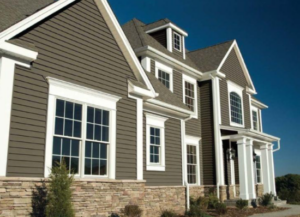
When comparing top products in the aluminum and vinyl siding categories, it’s essential to look at key factors like durability, aesthetics, and overall value. Here’s a breakdown that incorporates those factors:
Key Considerations:
- Durability:
- Aluminum: Known for its strength, especially against impact and harsh weather.
- Vinyl: Offers good durability against rot and insects, but can be susceptible to impact damage and fading.
- Aesthetics:
- Aluminum: Can provide a sleek, modern look, and can be painted.
- Vinyl: Offers a vast range of colors and textures, including options that mimic wood.
- Maintenance:
- Both: Generally low maintenance, requiring occasional cleaning.
- Cost:
- Vinyl: Typically more budget-friendly.
- Aluminum: generally more expensive.
Top Product Insights:
- Aluminum Siding:
- Rollex Aluminum Siding:
- Known for its heavy-gauge aluminum and durable baked-on enamel finish.
- Excellent for areas with extreme weather.
- It is a very strong product.
- Alcoa Aluminum Siding:
- Has a very good reputation for quality.
- Offers a very good baked on finish.
- Provides a long lasting product.
- Rollex Aluminum Siding:
- Vinyl Siding:
- CertainTeed Vinyl Siding:
- Offers a wide variety of styles and colors, including insulated options.
- Known for its quality and durability.
- Very popular, and has many available options.
- Mastic Vinyl Siding:
- Focuses on durability and low maintenance.
- Offers insulated options for improved energy efficiency.
- Is a very reliable brand.
- Prodigy Insulated Vinyl Siding:
- Focuses on energy efficiency.
- Offers good impact resistance.
- Is a premium vinyl option.
- CertainTeed Vinyl Siding:
Key Differences Summarized:
- Aluminum excels in areas with severe weather and where maximum impact resistance is needed.
- Vinyl is a versatile and cost-effective option for most homeowners, offering a wide range of aesthetic choices.
- Insulated vinyl siding, closes the gap on energy efficency, that aluminum siding has traditionally held.
Important Notes:
- Installation quality significantly impacts the performance of any siding.
- Local climate conditions should be a primary factor in your decision.
- It is always a good idea to get multiple quotes from local contractors.
By considering these factors, you can make an informed decision and choose the siding that best suits your needs and budget.
How to Buy and Where to Buy
Purchasing aluminum or vinyl siding involves several steps, from selecting the right material to finding a reliable supplier and installer. Here’s how you can proceed:
-
Research Online – Visit manufacturer websites such as:
- Ply Gem
- Kaycan
- Gentek
- Dizal
-
Request a Quote – Most manufacturers and retailers provide free online estimates based on your location and home dimensions.
-
Compare Options – Consider warranties, installation requirements, and the reputation of each brand.
-
Find a Local Dealer or Contractor – Many manufacturers have dealer locators on their websites. Hiring a professional ensures proper installation.
-
Make Your Purchase – Once you finalize your choice, you can order online or visit a local home improvement store such as:
- Home Depot – Offers a variety of siding options with installation services.
- Lowe’s – Carries top brands and provides installation support.
- Menards – A great place to find siding materials at competitive prices.
Installation and Maintenance Tips
To ensure your siding lasts for years, follow these guidelines:
Aluminum Siding
- Clean annually with mild soap and water.
- Repaint every 10-15 years if fading occurs.
- Check for dents and repair as needed.
Vinyl Siding
- Wash with a hose and mild detergent twice a year.
- Inspect for cracks, especially after extreme weather.
- Avoid placing grills or heat sources too close, as vinyl can warp.
Frequently Asked Questions (FAQs)
1. Which is more durable: aluminum or vinyl siding?
Aluminum siding is more resistant to extreme weather and fire, but it can dent easily. Vinyl siding is flexible and less prone to denting, but it may crack in extremely cold conditions.
2. Which siding option is more energy-efficient?
Vinyl siding, especially insulated options, provides better energy efficiency by reducing heat loss. Aluminum siding does not offer the same insulation properties unless combined with an underlayment.
3. Does aluminum siding require more maintenance than vinyl?
Yes, aluminum siding may require repainting over time, whereas vinyl siding maintains its color and requires only occasional cleaning.
4. Which is more affordable: aluminum or vinyl siding?
Vinyl siding is generally more affordable upfront and has lower maintenance costs. Aluminum siding can be more expensive due to its durability and longer lifespan.
5. Can I install siding myself, or should I hire a professional?
While some homeowners with experience in construction can install siding, it’s recommended to hire a professional to ensure proper alignment, weatherproofing, and long-term durability.
Final Thoughts: Choosing the Right Siding for Your Home
Both aluminum and vinyl siding have their unique benefits. If you prioritize durability, fire resistance, and a classic look, aluminum siding might be the best choice. If affordability, low maintenance, and design variety matter more, vinyl siding is the way to go.
